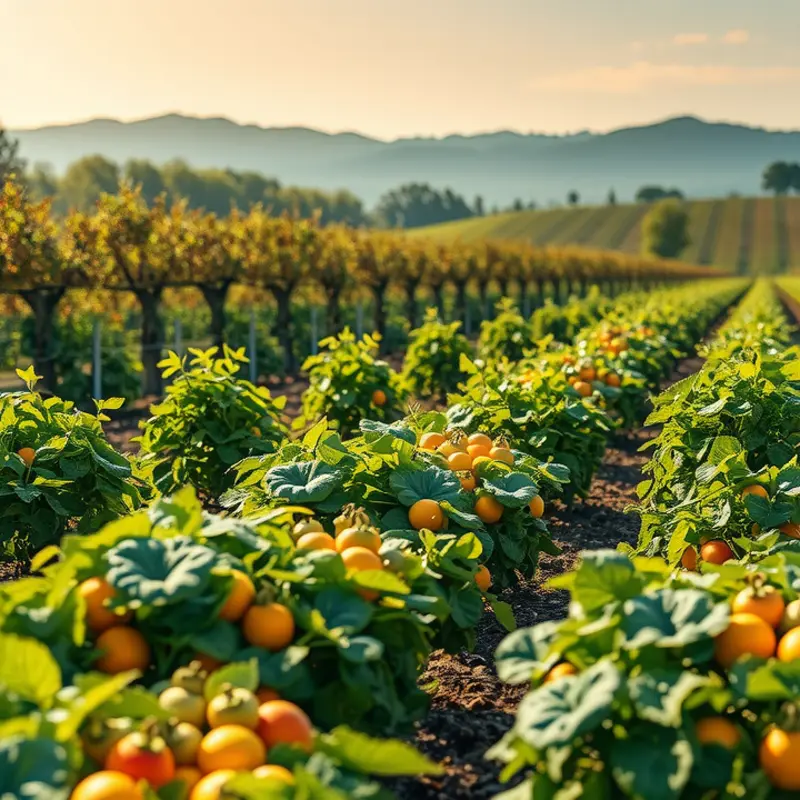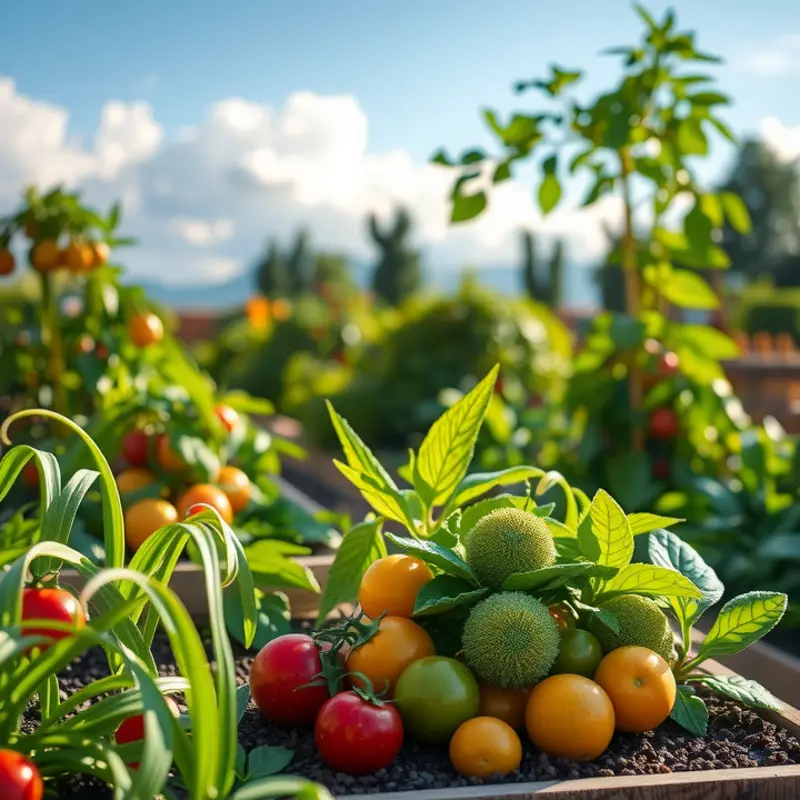Choosing sustainable produce plays a vital role in combating climate change and promoting environmental health. With increasing awareness of food systems’ environmental impacts, consumers have the power to influence sustainable practices by selecting eco-friendly options. This journey of conscious choices not only supports local economies but also nurtures our planet. By understanding the nuances of sustainable produce, anyone can make informed decisions that align with their environmental values.
Understanding Sustainable Produce

Sustainable produce represents a commitment to farming that prioritizes ecological balance, biodiversity, and soil health. The core principles of sustainable farming include practices like crop rotation, conservation tillage, and the judicious use of natural resources. By understanding these principles, consumers can better appreciate the impact of their food choices on the environment.
Organic farming sits at the heart of sustainable agriculture. It focuses on upholding ecological harmony without relying on synthetic pesticides or fertilizers. Instead, organic farmers use natural pest controls, green manure, and composting to maintain soil fertility. This approach not only preserves the environment but also boosts the nutritional value of crops.
Seasonal eating is another key concept in sustainable produce. Consuming seasonal produce reduces dependency on large-scale transportation, which often involves significant carbon emissions. Local farmers’ markets reflect the season’s bounty, offering fresher produce that hasn’t undergone long transit or extensive packaging, thereby reducing waste. When selecting fruits and vegetables, being mindful of seasonality can lead to choices that are both environmentally friendly and tastier.
Local sourcing plays a crucial role in sustainability. By purchasing from local farms, consumers support smaller agricultural communities and decrease food miles—the distance food travels from farm to table. This practice reduces greenhouse gas emissions and often results in fresher, more nutrient-rich produce.
The environmental impact of dietary choices cannot be overstated. Conventional farming methods often contribute to soil degradation, water pollution, and loss of biodiversity. By contrast, sustainable farming actively seeks to mitigate these adverse effects. Choosing responsibly grown produce leads to a reduced ecological footprint and an enhanced agricultural landscape.
Recognizing labels that indicate sustainability can empower consumers. Labels such as organic, fair trade, and rainforest alliance provide assurance that the produce meets specific environmental and social standards. These certifications ensure that sustainable practices are followed, and they help consumers make informed choices aligned with personal and planetary health.
Equipping yourself with knowledge about sustainable produce aligns with broader eco-friendly practices, such as eco-smart kitchen storage, which can further enhance the impact of your dietary choices on the environment. This chapter introduces the foundational knowledge necessary to recognize and value sustainable produce, establishing a conscious connection between everyday choices and long-term environmental stewardship.
Embracing Sustainable Choices

Incorporating sustainable produce into your lifestyle can be both rewarding and impactful. Your first step might be exploring your local farmers’ market. These markets often showcase the freshest produce, harvested at the peak of ripeness, ensuring nutrient density and flavor. When shopping, consider asking the farmers about their growing practices. Many prioritize organic methods, avoiding harmful pesticides and contributing to soil health. By choosing local, you’re reducing the carbon footprint associated with long-distance food transportation.
Seasonal fruits and vegetables are another cornerstone of sustainable eating. They tend to be more abundant and affordable when in season, reducing the need for energy-intensive growing methods. Eating seasonally also provides variety throughout the year – think strawberries in the spring and hearty squash in the fall. For a deeper dive into minimal prep dinner ideas using seasonal produce, this guide offers creative ways to incorporate them into your meals.
Community-supported agriculture (CSA) programs present a more committed approach. By subscribing to a CSA, you are essentially investing in a local farm’s harvest for the season. In return, you receive a regular share of fresh produce. This model not only guarantees you access to sustainable food but also fosters a stronger connection with the land and those who cultivate it.
Beyond these benefits, building relationships with local farmers enhances community ties and increases food transparency. Learning the story behind your food adds a level of appreciation and trust that is less common with mass-produced items.
Preserving seasonal produce extends their benefits throughout the year and reduces waste. Simple methods include canning, pickling, or freezing. For instance, you can make a big batch of tomato sauce during the summer when tomatoes are at their best, and either can or freeze it for later. This ensures you have summer-fresh flavors available even in the cooler months. Similarly, berries can be frozen on a baking sheet, then stored in containers for smoothies or baking.
Here’s a quick recipe: try making a simple fruit preserve. Start with fresh berries and sugar in a 2:1 ratio. Heat them slowly, stirring occasionally until the mixture thickens. Store in sterilized jars, and enjoy your homemade preserve throughout the year.
Embracing these sustainable choices may require shifts in shopping and cooking habits, but the rewards of fresher flavors, environmental stewardship, and community engagement make them worthy endeavors.
Final words
Making sustainable produce choices does not have to be overwhelming; rather, it’s an empowering journey that enhances not only your health but also the health of our planet. By understanding key concepts like organic farming and local sourcing, you are better equipped to choose eco-friendly options that make a difference. Embrace seasonal foods and support local farmers to cultivate a more sustainable lifestyle. Every small decision contributes to a collective effort in promoting environmental integrity, encouraging you to enjoy delicious, fresh, and nourishing food while being a responsible steward of the Earth.








